
AlphaLISA Bovine IgG2 Detection Kit, 5,000 Assay Points
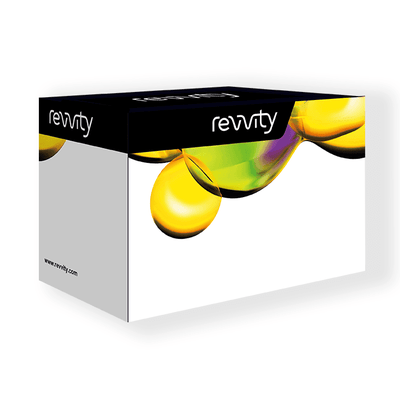
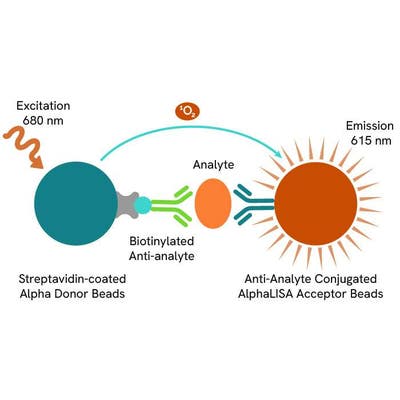
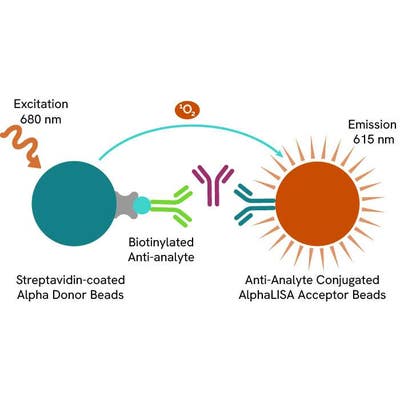 View All
View All
AlphaLISA Bovine IgG2 Detection Kit, 5,000 Assay Points
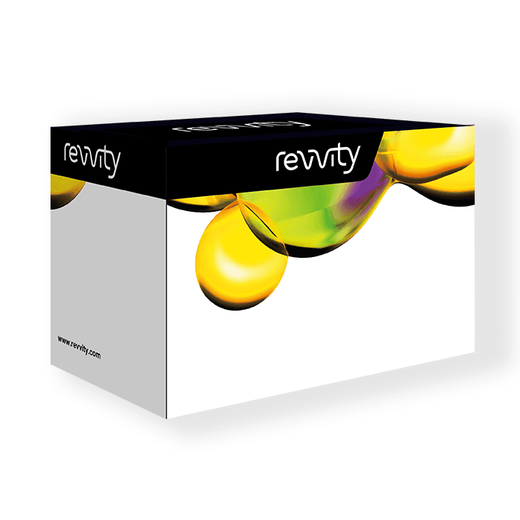
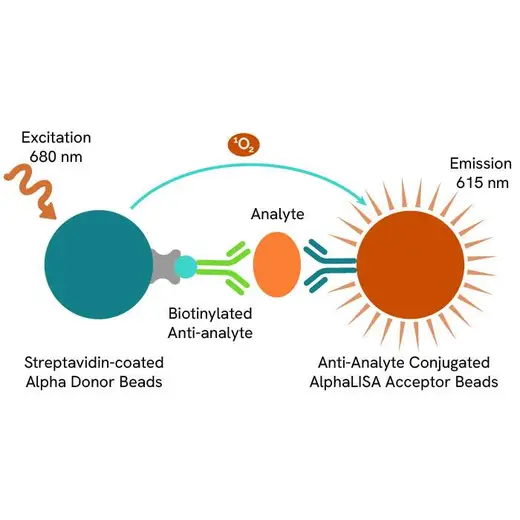
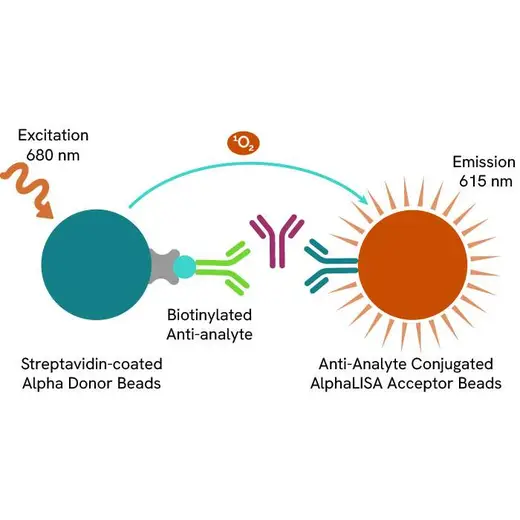




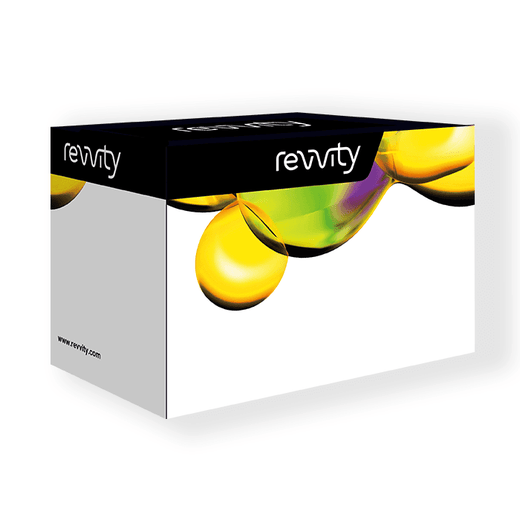
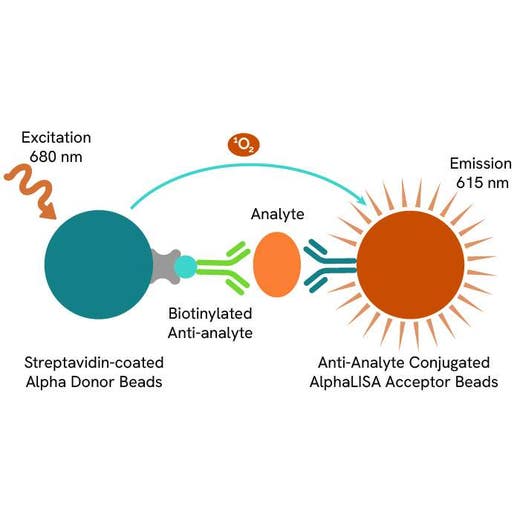
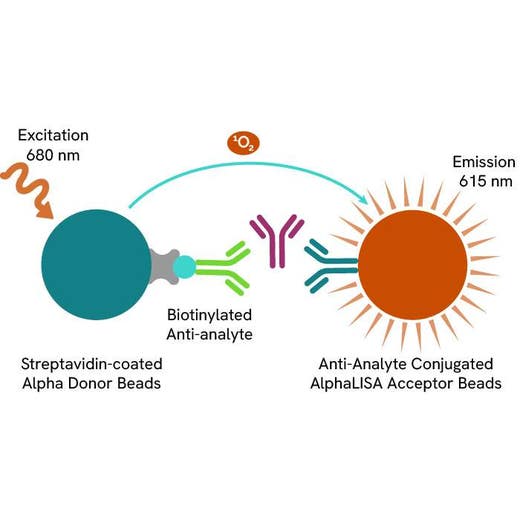




The AlphaLISA immunoassay kit for detection and quantitation of bovine IgG2 in serum, plasma, and other sample types allows for fast, reproducible, and sensitive detection without the need for time-consuming wash steps or complicated assay development.
| Feature | Specification |
|---|---|
| Application | Protein Quantification |
| Dynamic Range | 2.1 - 3,000 ng/mL |
| Limit of Detection | 2.06 ± 1.3 ng/mL |
| Limit of Quantification | 5.67 ng/mL |
| Sample Volume | 5 µL |
The AlphaLISA immunoassay kit for detection and quantitation of bovine IgG2 in serum, plasma, and other sample types allows for fast, reproducible, and sensitive detection without the need for time-consuming wash steps or complicated assay development.







AlphaLISA Bovine IgG2 Detection Kit, 5,000 Assay Points







AlphaLISA Bovine IgG2 Detection Kit, 5,000 Assay Points







Product information
Overview
Formats:
- Our HV (100 assay point) kits allow you to run 100 wells in 96-well format, using a 100 µL reaction volume (10 µL of sample).
- Our 500 assay point kit allows you to run 500 wells in 96-well or 384-well format, using a 50 µL reaction volume (5 µL of sample).
- Our 5,000 assay point kit allows you to run 5,000 wells in 96-well or 384-well format, using a 50 µL reaction volume (5 µL of sample).
Features:
- No-wash steps, no separation steps
- ELISA alternative technology
- Sensitive detection
- Broad sample compatibility
- Small sample volume
- Results in less than 3 hours
- Half the time of an ELISA assay
There are five classes of mammalian immunoglobulins: IgA, IgD, IgE, IgM, and IgG. IgG is the most abundant immunoglobulin and is equally distributed in blood and tissue. In bovine, the IgG class is further divided into two subclasses: IgG1 and IgG2. The general immunoglobulin structure is composed of four polypeptide chains, two heavy and two light chains linked together and to each other by disulfide bonds, creating a tetrameric quaternary structure. IgG1 is involved in response to a foreign antigen. The presence of IgG2 usually signifies a mature antibody response. IgG2 has a molecular weight of about 150 kDa, it can bind to many pathogens and also plays an important role in antibody-dependent cell-mediated cytotoxicity. Typically, bovine serum and plasma samples contain about 5.0 to 13.5 mg/mL of IgG2. The present kit permits detection of bovine IgG2 (i.e. analyte) in bovine serum and plasma.
AlphaLISA technology allows the detection of molecules of interest in a no-wash, highly sensitive, quantitative assay. In an AlphaLISA assay, a biotinylated anti-analyte antibody binds to the Streptavidin-coated Donor beads while another anti-analyte antibody is conjugated to AlphaLISA Acceptor beads. In the presence of the analyte, the beads come into close proximity. The excitation of the Donor beads causes the release of singlet oxygen molecules that triggers a cascade of energy transfer in the Acceptor beads, resulting in a sharp peak of light emission at 615 nm.
Specifications
| Application |
Protein Quantification
|
|---|---|
| Automation Compatible |
Yes
|
| Brand |
AlphaLISA
|
| Detection Modality |
Alpha
|
| Dynamic Range |
2.1 - 3,000 ng/mL
|
| Limit of Detection |
2.06 ± 1.3 ng/mL
|
| Limit of Quantification |
5.67 ng/mL
|
| Product Group |
Kit
|
| Sample Volume |
5 µL
|
| Shipping Conditions |
Shipped in Blue Ice
|
| Target |
IgG2
|
| Target Class |
Biologics
|
| Target Species |
Bovine
|
| Technology |
Alpha
|
| Unit Size |
5,000 Assay Points
|
Image gallery






AlphaLISA Bovine IgG2 Detection Kit, 5,000 Assay Points






AlphaLISA Bovine IgG2 Detection Kit, 5,000 Assay Points






Video gallery

AlphaLISA Bovine IgG2 Detection Kit, 5,000 Assay Points

AlphaLISA Bovine IgG2 Detection Kit, 5,000 Assay Points

Resources
Are you looking for resources, click on the resource type to explore further.
With over 200 different types of cancer, management relies on a variety of techniques such as chemotherapy, radiotherapy, and...
Leptospirosis is an infectious disease caused by Leptospira bacteria, which can spread across different species of mammals...


How can we help you?
We are here to answer your questions.






























